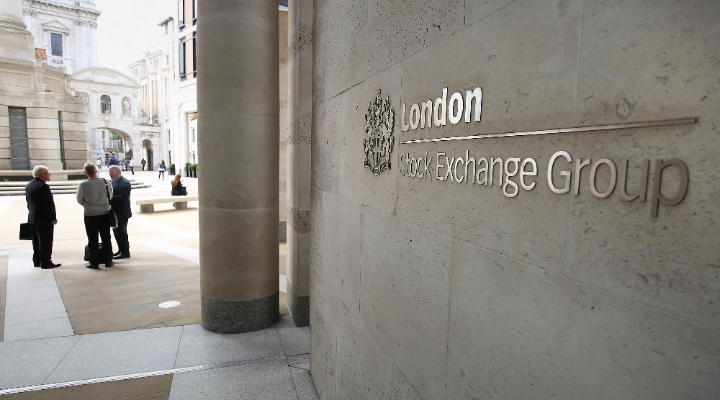
Andrew Vernon is backing investment trusts in his quest to achieve financial independence within 10 years, but the private investor has suffered a major setback.
As well as holding Fundsmith Emerging Equities Trust (FEET) and Odyssean Investment Trust (OIT), 43-year-old Andrew also has money in Woodford Patient Capital Trust (WPCT). The latter has recently seen its share price plunge after its manager Neil Woodford was sacked by the Board from running the trust.
The controversial manager has been forced to shutter his boutique fund firm Woodford Investment Management after being removed from the running of his other two funds, Equity Income and Income Focus.
Other investments have been more successful for Andrew, who is hoping to be achieve financial independence by age 52. He says: “Many people say they are saving for retirement, but I don’t think this is a fitting word. A better thought process is financial independence. I want the option to work less or do a job that is less onerous on my time.”
This wouldn’t be possible without a a generous final salary pension, he admits. Andrew, who works in the banking industry, expects his pension to pay around £24,000 a year from the age of 60.
Such generous pension schemes have been closed by many companies and Andrew is no longer able to pay into this plan. Instead he tries to contribute as much as he can into his workplace defined contribution pension and also saves significant sums into a self-invested personal pension (Sipp) and an Isa, both held with AJ Bell.
Andrew says: “I am using salary sacrifice to put as much into the workplace pension as possible. This brings my take home pay down below the higher-rate tax threshold, and it also means as a family we can claim child benefit.” This benefit is withdrawn — or an equivalent tax charge levied — if one parent earns over £50,000.
Andrew, who lives in Cambridge with his wife and two children, adds: “As well as being tax efficient it is also easier to budget and psychologically easier to pay this money into the pension this way, rather than finding a lump sum at the end of the month, or tax year.”
The Sipp is used as a “balancing tool” Andrew says, to mop up any unused annual pension allowance (the current annual allowance is £40,000). While his workplace pension is invested in a larger managed fund — that invests in global equities, tracker funds and infrastructure — Andrew’s Sipp is split between the three aforementioned investment trusts.
Investment trusts also take centre stage in his Isa. His holdings include the Gold Rated Scottish Mortgage (SMT) and BMO Commercial Property (BCPT). He plans to add Silver rated BlackRock Smaller Company Trust (BRSC) to the portfolio soon.
Andrew has picked these various trusts because of the fund manager’s track record, or because they offer exposure to specific parts of the investment market. “Scottish Mortgage has been chosen for its global style, plus a degree of private equity and tech focus. BMO because it acts as counterweight to equities and has a large exposure to the property markets in the south east and the West End of London, which I believe will always stay good even in the toughest of times.”
Morningstar points out that the Scottish Mortgage trust focuses on high-growth companies and tends to hold them for the long-term to gain the benefit of compounded growth. These companies are often new entrants or disruptors into a region or industry.
Morningstar analyst David Holder says: “This isn’t a fund for the risk-averse but does have considerable merit for long-term investors seeking exposure to the potential winners of tomorrow within a broadly spread portfolio.”
Andrew hopes the investment in BlackRock Smaller Companies Trust will add greater diversification into his portfolio: “This is a UK focused trust, which is important as a hedge against my otherwise more global approach, and I believe there is value in the under-researched area of smaller companies.”
It is not surprising that both the Fundsmith and Woodford trusts were initially selected because they by star fund managers (Terry Smith and Neil Woodford) - but the fortunes of the two have diverged significantly since.
Andrew had invested in Terry Smith’s Gold-rated Fundsmith Equity fund through an Isa back in 2010, and has been extremely pleased with returns since. The Fundsmith Emerging Markets Trust, however, is now managed by Michael O’Brien and Sandip Patodia, rather than Terry Smith. It has a three-star rating from Morningstar, but it has not delivered the same stellar returns as Smith’s global unit trust.
FEET has delivered total annualised returns to shareholder of 6.56% over the past year, but an annualised loss of 0.16% over three years and annualised returns of just 1.62% over five years according to Morningstar data.
However, these modest returns are significantly better than the losses on the Woodford Patient Capital trust. Over the past three years, shareholders have seen total annualised losses of 29.39%, with a 61.31% loss over the past year.
Andrew describes this as “his worst holding”. It remains to be seen what will happen to this investment trust, following the decision by Woodford Investment Management to close its business and resign as manager of the trust. The board will now decide whether to appoint a new management group, or wind-up the vehicle, returning assets to shareholders.
While shares had not performed well, Andrew was holding on in the hope of a turnaround in fortunes. He says: “I was expecting Woodford would be managed out of the unit trusts, but was hoping he would concentrate his efforts on this investment trust instead. The private equity part is risky, but perfect for a longer-term investor like myself.”
Now, however, the future of the trust is uncertain. Still, Andrew thinks it makes sense to access such risky assets through a closed-end vehicle. He says: “When it comes to buying funds or trusts I like a fund manager who has a focused conviction-based approach.”
As well as that, costs are important: “I don’t like to pay an ongoing charge of more than 1.5%, although there are occasions when I don’t stick to this. I think a trust like Fundsmith Emerging Equities trusts justifies the extra cost - it is expensive but I believe Terry Smith’s style is a good long term play.”




























